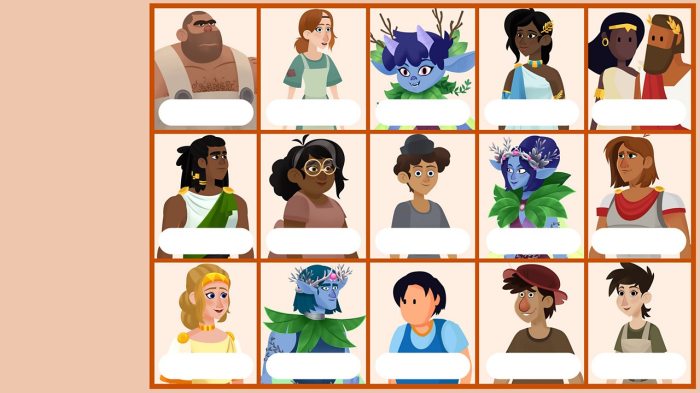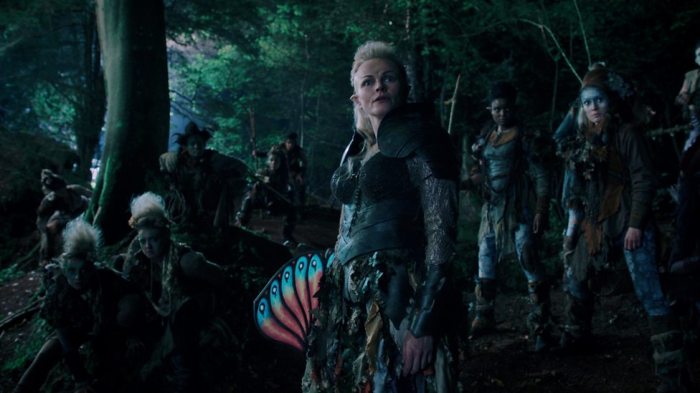Titania midsummer night’s dream monologue – Titania’s monologue in Shakespeare’s A Midsummer Night’s Dream stands as a testament to the power of language, love, and the transformative nature of the human experience. Through her passionate and evocative words, Titania reveals her innermost desires, struggles, and vulnerabilities, inviting us to delve into the complexities of her character and the play’s enchanting world.
As Titania’s monologue unfolds, we witness the interplay between her regal authority and her vulnerability as a lover and mother. Her language is rich in imagery and symbolism, reflecting the magical and dreamlike atmosphere of the play. Through her words, we gain insights into the complexities of her relationship with Oberon, the challenges of her rule, and the profound impact of love on her life.
Titania’s Character

Titania is the Queen of the Fairies in Shakespeare’s Midsummer Night’s Dream. She is a powerful and majestic figure, but she is also capricious and easily angered. Her relationship with her husband, Oberon, is complex and often fraught with tension. Oberon is often jealous of Titania’s love for the mortal Bottom, and he uses his magic to torment her and the other fairies.
Titania’s interactions with other characters are often characterized by her capriciousness. She can be kind and loving one moment, and cruel and vindictive the next. Her relationship with the mortal Bottom is particularly complex. She is initially attracted to him because of his donkey’s head, but she eventually comes to love him for his true self.
Monologue Analysis

Titania’s monologue from Act II, Scene II is one of the most famous speeches in Midsummer Night’s Dream. In it, she expresses her love for Bottom and her anger at Oberon for tormenting her. The monologue is full of beautiful imagery and poetic language, and it gives us a glimpse into Titania’s complex and passionate nature.
The monologue is structured around a series of contrasts. Titania begins by describing the beauty of the natural world, but she then goes on to contrast this with the cruelty and injustice of Oberon’s behavior. She also contrasts her love for Bottom with her anger at Oberon, and she ends the monologue by vowing to take revenge on her husband.
The monologue is full of literary devices, including metaphors, similes, and personification. Titania compares Oberon to a “tyrant” and a “cruel king,” and she describes her love for Bottom as a “flame” that burns “brighter than the sun.” The monologue is also full of imagery, including images of flowers, birds, and animals.
Contextual Interpretation: Titania Midsummer Night’s Dream Monologue

Titania’s monologue occurs at a crucial point in the play. Oberon has just used his magic to make Titania fall in love with Bottom, and she is now furious with him. The monologue is Titania’s way of expressing her anger and her determination to take revenge on her husband.
The monologue contributes to the overall plot of the play by setting up the conflict between Oberon and Titania. It also helps to develop Titania’s character by showing us her passionate and vengeful nature. The monologue is also full of symbolism and imagery, which helps to create the play’s magical and dreamlike atmosphere.
Performance Considerations

| Character | Motivation | Objective | Obstacle |
|---|---|---|---|
| Titania | To express her love for Bottom and her anger at Oberon | To take revenge on Oberon | Oberon’s magic |
An actor playing Titania’s monologue should focus on conveying her emotions. The monologue is full of passion and anger, and the actor should be able to convey these emotions to the audience. The actor should also be able to use their voice to create a sense of magic and wonder.
Literary Impact
Titania’s monologue has had a significant impact on the history of literature. It is one of the most famous speeches in Shakespeare’s plays, and it has been quoted and imitated by many other writers. The monologue has also been set to music by many composers, including Mendelssohn and Britten.
Titania’s monologue is a powerful and moving piece of writing that explores the themes of love, revenge, and jealousy. It is a testament to Shakespeare’s genius that he was able to create such a complex and unforgettable character.
Commonly Asked Questions
What is the significance of Titania’s monologue in the play?
Titania’s monologue is a pivotal moment in the play, revealing her inner turmoil and setting in motion the events that will follow. It provides insights into her character, her relationship with Oberon, and the complexities of the fairy world.
How does Titania’s language reflect the play’s themes?
Titania’s language is rich in imagery and symbolism, reflecting the play’s themes of love, transformation, and the power of imagination. Her use of metaphors and similes creates a vivid and dreamlike atmosphere that transports the audience into the enchanted world of the fairies.
What is the dramatic impact of Titania’s monologue?
Titania’s monologue has a profound impact on the play’s plot and characters. It sets in motion the events that will lead to the resolution of the conflict between Oberon and Titania, and it also reveals the depths of Titania’s love and vulnerability.